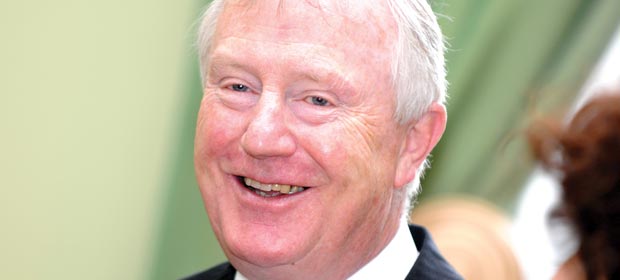In the immediate aftermath of the recent election, there appears to be widespread support for the suggestion that ‘a new way of doing politics’ ought to be explored. It will be interesting to see if anything comes of it, writes Denis Doherty.

During most of our history since Independence, the health of our people has been compromised because our politicians have been preoccupied with the party politics of health. The recent election campaign, like others before it, fixated on waiting lists and trolley numbers. These are but symptoms of deep malaise in a system that has been in crisis for a long time.
Seven years have been wasted pretending we were moving to a single tier health service funded by universal health insurance. A promised time- frame of four years for achieving all that, and at no extra cost, was irresponsible. No progress has been made on implementing universal health insurance and the granting of medical cards to some children and the over seventies is all there is to show by way of progress in developing universal health care.
Seven years have been wasted pretending we were moving to a single tier health service funded by universal health insurance.
The way we have done health policy up until now has not worked. The worst thing that could happen now is that an insecure government would feel unable to tackle the real issues in the health system that need to be dealt with urgently and that ‘health’ will continue to serve as a convenient political football from now until the next election.
That situation can be avoided but will require political leadership of a kind that has been absent for a very long time in Ireland, arguably back to the days of Donogh O’Malley in the Department of Education in the mid 1960s.
A severe shock to the political system can occasionally result in enduring benefits. In 1945, Britain emerged victorious but severely bruised, from the war. The wartime government led by Winston Churchill was very popular and was expected to win the election that year. In the event, the Labour Party, led by Clement Attlee, won a landslide victory. They promised free education and a national health service and delivered on their promises.
In 1948, the Health Secretary, Aneurin Bevan, launched the NHS, which has endured to this day. The NHS was based on two key principles of universal coverage and free of charge at the point of use. The NHS, though not beyond criticism, is widely admired as a single tier health system that provides universal coverage and is also cost effective.
Harvard University Professor, Rosabeth Moss Kanter, is a revered leadership expert. She strongly believes that without vision and values, leadership is hollow, that you have to build expectations and make sure people are motivated. “If they feel it’s futile that’s when they give up”. Work. CIPD. Spring 2016
It is not surprising then that the NHS has endured. Universal coverage and free of charge at the point of use are principles that require little explanation and are easy to relate to. British people are proud of their health service and are willing to celebrate their pride in it. A good, recent example of that was the tribute paid to the NHS in the spectacular opening ceremony of the London Olympics in 2012. I cannot recall any comparable occasion when tributes were paid to our health services.
Political leadership, based on vision and values, remotely comparable to those that underpin the NHS, has not been experienced here.
Is it any wonder that, sadly, too many talented workers in our health services have either given up or are at risk of giving up? They are fed up with slogans and pie in the sky promises that everyone knows are not to be taken seriously.
If we go back as far as 1968, ‘party politics’ has taken precedence over the health of the Irish people where the Fitzgerald Report to the Hanley Report were concerned. For thirty years, from the early 1970s, Comhairle na nOspidéal struggled, with only limited success, to overcome not only party politics but medical politics also, in attempting to bring about overdue changes to our hospital services.
When our health services were already in crisis at the beginning of this century, we took to proclaiming that we were embarking on building a world-class health service and it didn’t seem to matter that no one believed that was achievable based on the reality of the Ireland with which they were familiar. At the same time, we claimed we were embarking on developing networks of centres of excellence when all reasonable people would, to begin with, gladly settle for networks of centres of competence.
Great strides have been made in improving many aspects of our health services over the years but the overall sense is one of a service that has been in a state of permanent crisis for as long as most people can remember.
Political leadership, based on vision and values, remotely comparable to those that underpin the NHS, has not been experienced here. If our politicians are serious about a new way of doing politics they will do the Irish people a great service by prioritising health policy.
Experts, in leadership, such as Rosabeth Moss Kanter, who is not a stranger to our health services, in public health, in health economics, in finance and in politics would relish the challenge of designing a latter day equivalent of the initiative that gave birth to the enduring NHS.

